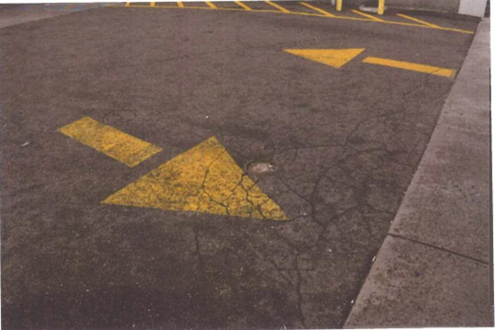|
NOTE FROM THE EDITOR:
This month we are thrilled to welcome three new attorneys to Hurwitz Fine’s Buffalo office:
Jason A. Goodman has joined Hurwitz Fine P.C. as a Member in the firm’s Litigation Department. Jason handles complex toxic tort, asbestos defense, motor vehicle accident, medical transportation and products liability matters. He has experience defending litigated matters from inception through trial, including post-trial motions and appeals, for corporate and insurance clients. Jason earned his Bachelor of Science from SUNY College of Environmental Science and Forestry and his Master of Studies in Environmental Law as well as Juris Doctor from Vermont Law School.
Carly D. Brown has joined Hurwitz Fine P.C. as Special Counsel in the firm’s Economic Development and Business Services practice areas. Carly represents a diverse range of clients, including industrial development agencies, local development corporations, and businesses. She earned her Juris Doctor from Brooklyn Law School and holds a master’s degree in social work as well as a bachelor’s degree from the University at Buffalo.
Michael L. Lieberman has joined Hurwitz Fine P.C. as an Associate in the firm’s Litigation Department. His practice encompasses a wide range of litigation matters, including premises liability, school district representation, motor vehicle accidents, medical malpractice, and nursing home litigation. Mike earned his Juris Doctor from the University at Buffalo School of Law, where he graduated magna cum laude. He received his undergraduate degree from SUNY Binghamton, graduating summa cum laude with a Bachelor of Arts.
Welcome, Jason, Carly and Mike!
We are also excited to announce the continued growth of our Long Island office, marking a significant milestone in our firm’s expansion. Due to increasing demand and our commitment to providing exceptional legal services, we have relocated to a larger, more modern office space to accommodate our growing team of attorneys and staff. This move reflects our dedication to serving clients throughout Long Island and the greater New York area. As we settle into our new space, we look forward to strengthening our presence in the region and continuing to provide high-quality legal representation. For more information or to connect with our Long Island team, visit our website here.
Lastly, in Premises Pointers news, columnist Marc A. Schulz, who covers Homeowner Liability, Recreational Accidents and Discovery Angles, recently welcomed a baby girl with his wife. Congratulations to Marc and his growing family!
-Jody
Don’t forget to subscribe to our other publications:
Coverage Pointers: This biweekly electronic newsletter summarizes important insurance law decisions from appellate courts in New York State with the occasional snapshot across borders. Coverage Pointers, the electronic newsletter that started it all, continues to offer guaranteed publication every other Friday, and a read-at-a-glance summary of important decisions as they happen. Contact Dan Kohane at [email protected] to be added to the mailing list.
Labor Law Pointers: Labor Law Pointers offers a monthly review and analysis of every New York State Labor Law case decided during the month by the Court of Appeals and all four Departments. This e-mail direct newsletter is published the first Wednesday of each month on four distinct areas – New York Labor Law Sections 240(1), 241(6), 200 and indemnity/risk transfer. Contact Dave Adams at [email protected] to subscribe.
Medical & Nursing Home Liability Pointers: Medical & Nursing Home Liability Pointers provides the latest news, developments, and analysis of recent court decisions impacting the medical and long-term care communities. Contact Liz Midgley at emm@hurwitzfine.com to subscribe.
Products Liability Pointers: This monthly newsletter covers all areas of products liability litigation, including negligence, strict products liability, breach of warranty claims, medical device litigation, toxic and mass torts, regulatory framework and governmental agencies. Contact Chris Potenza at [email protected] to subscribe.
|
|
|
|
|

Retail, Restaurant and Hospitality Happenings Around New York State and Beyond
By: Jody E. Briandi [email protected]
This month, a Los Angeles jury awarded Michael Garcia 50 million dollars in damages after he suffered severe burns when a scalding hot tea spilled onto his lap at a Starbucks drive-through in 2020. According to court papers, the plaintiff entered the drive-through, ordered hot drinks, and proceeded to the pickup window. The allegation is Starbucks failed to prevent the hot beverages from spilling onto the customer and had a duty to properly secure the drinks in the tray before handing them to the customer. Specifically, it is claimed that when the barista handed the plaintiff the order, a venti-sized “medicine ball” hot tea fell out and onto the plaintiff, who sustained third-degree burns that required extensive treatment. After failed settlement negotiations and a denied motion for summary judgment, the case proceeded to trial, and the jury deliberated for 40 minutes. The surveillance video was a key piece of evidence presented during the trial. An appeal will undoubtedly be filed based on the amount awarded. Click here for more details about the case.
3/06/2025 Wang v. Omni Hotels Mgmt .Cort
United States District Court, District of Connecticut
Defendant’s motion to compel medical records is granted.
Plaintiff Hui Wang slipped and fell in the lobby of Omni's hotel in New Haven on September 25, 2018 around 7:40 pm. It had been raining that day since at least 2:30 pm. Omni had placed a "Caution Wet Floor" sign in the lobby around 2:30 pm as a precaution. There is dispute over whether the floor was actually wet where plaintiff fell and whether Omni's safety measures were adequate. Since this case was removed based on diversity, Connecticut premises liability law applied but, federal summary judgment standards under Federal Rule of Civil Procedure 56 controlled. The court stressed that while the moving part must show that there are no genuine issues of fact, the non-movant must also set forth specific facts and affirmative evidence in order to defeat a properly support summary judgment motion. Under that standard, the court found that Plaintiff provided sufficient evidence that included her testimony and video evidence of others slipping to create a factual dispute over whether a dangerous wet condition existed on the floor. The court further found there is conflicting evidence on whether Omni had actual or constructive notice of the alleged wet condition, making summary judgment inappropriate on this issue. The effectiveness of Omni's warning sign and whether the condition was "open and obvious" were also factual issues that a jury should decide based on the disputed evidence. There were also questions noted regarding whether Omni regularly and continuously inspected the lobby.
3/04/2025 Duczinski v. Kohl’s, Inc.
United States Court of Appeals for the Second Circuit
On appeal, the Second Circuit reversed the District Court’s grant of summary judgment to defendant Kohl’s finding that whether a condition is not open and obvious is not dispositive of the entire claim.
The plaintiff, who is 5 feet tall, visited a Kohl's store and tried unsuccessfully to reach a spatula hanging 7 feet and 4 inches above the floor. After briefly looking for assistance, Dudzinski jumped to try to reach the spatula, fell, and suffered a severe leg injury. The Court agreed with plaintiff that the open and obvious nature of the spatula display's dangers is not dispositive of her premises liability claim against Kohl's in its entirety. The Court specifically noted that at oral argument defendant Kohl's conceded the existence of a duty of care distinct from a duty to warn and the existence of a fact question with respect to whether it breached the former duty to maintain the premises in a reasonably safe condition.
|
|
|
|

Labor & Employment for Retailers, Hospitality, and School District Litigation
By: Anastasia M. McCarthy [email protected]
Dear Readers,
We continue to track changes affecting the workplace in New York State as well as at the federal level. If you require assistance navigating these various developments, please contact us.
Recently, in response to the Governor’s budget, the NY State Senate introduced its own one-house budget bills. Interestingly, the Senate’s legislation and budget includes extensive childcare funding intended to return parents to the workforce. Highlights include:
$500 million for a Child Care Workforce Stabilization fund—The fund is intended to expand the childcare workforce in order to make childcare more widely available.
$25 million for expanding non-traditional-hour childcare.
At the federal level, the EEOC has issued guidance and a press release related to corporate Diversity, Equity, Inclusion, and Belonging policies and programs. I am happy to help guide you should you require it.
|
|
|
|
|

Are You Fall Real? Slip and Fall/Snow and Ice/Storm in Progress/Espinal
By: Patrice C.S. Melville [email protected]
Hi Readers,
Happy spring! As the weather begins (albeit slowly) to warm up and we emerge from hibernation, let’s all be mindful to not get “tripped up” along the way. This month’s offering highlights two cases; one case commenced against a property owner for a condition within the sidewalk and the other against a tenant commenced by an Airbnb guest tripped on an exterior staircase. Enjoy the warmer days ahead and be sure to keep a proper lookout!
3/19/2025 Brown v. 1133 E., LLC
Appellate Division, Second Department
An Abutting Owner Must Establish that It Did Not Create A Dangerous Condition, Did Not Perform Negligent Repairs, and Did Not Cause a Condition to Exist Due to Special Use of the Area In Order to Establish Entitlement to Summary Judgment Dismissal of a Plaintiff’s Complaint for Conditions Not Considered to Be A Part of the Sidewalk.
The plaintiff tripped and fell on a round, metal circle on the sidewalk in front of a commercial property in Brooklyn, New York. The round, metal circle was the remnant of a metal bicycle rack that had been removed from the sidewalk. The plaintiff commenced this action to recover damages for personal injuries against the abutting property owner. The abutting property owner moved for summary judgment dismissing the complaint and all crossclaims against it. The Supreme Court denied the motion, and the abutting property owner appealed.
On appeal, the Second Department reasoned that while Administrative Code of the City of New York § 7-210 shifts tort liability for injuries arising from a defective sidewalk from the city to the abutting property owner and imposes a duty upon the property owner to maintain the sidewalk in a reasonably safe condition, it does not impose civil liability on property owners for conditions such as city-owned tree wells and sign posts on the sidewalk. The Court further reasoned that liability may only be imposed on the abutting property owner in such instances only where the property owner has affirmatively created the dangerous condition, negligently made repairs to the area, or caused the dangerous condition to occur through a special use of that area.
Here, the Court held that the abutting property owner established that a bicycle rack was not part of the sidewalk for the purposes of section 7-210. However, the Court determined that the property owner failed to establish that it was not the entity that removed the bicycle rack that had been in the area of the subject accident, leaving the round, metal circle on which the plaintiff allegedly tripped. Therefore, the Court held that the property owner failed to establish that it did not cause or create the allegedly dangerous condition that caused the plaintiff's fall, affirming the lower Court decision.
03/24/2025 Vasquez v. Tapbrobane, LLC
Supreme Court, New York County
A Tenant May Not Be Responsible for Maintaining Common and/or Public Areas Unless the Lease Agreement States Otherwise.
The plaintiff claimed that she tripped and fell while descending an exterior stairwell from the first floor to a garden-level apartment of a premises. Plaintiff claimed that the step-risers were unevenly spaced, the stairwell lacked a proper handrail, and that the stairwell was dimly lit. Plaintiff commenced suit against the property owner and tenants, arguing that they had a collective duty to ensure the premises were maintained, operated and controlled in a reasonably safe manner, and thus breached that duty.
The tenants moved for summary judgment, arguing they owed plaintiff no duty and therefore could not be held liable for her injuries. The tenants further argued that plaintiff was unaware of the location of the accident and that any negligence claim is speculative. Additionally, tenants argued that because they owed no duty to plaintiff, the owner’s claims for indemnification or breach of contract must be dismissed. Plaintiff opposed the tenants’ motion arguing that the tenants owed her a duty to maintain the premises safely because they were leaseholders of the apartment and operated the Airbnb that plaintiff was visiting on the night of the incident. Plaintiff further contends that tenants’ motion is premature due to incomplete discovery. In reply, tenants maintained they owed plaintiff no duty because the incident occurred on an exterior staircase, not within the leased apartment. They also argued that plaintiff failed to demonstrate how further discovery would yield relevant information.
Here, the Court determined that the lease agreement between tenants and property owner gave tenants possession of the apartment and did not delegate any responsibility to maintain any public space or area outside of the leased unit. The Court held that because tenants were not contractually obligated to maintain the exterior staircase where plaintiff fell, and the lease specifically restricted their use of public space, they were not liable for any alleged structural deficiency to the exterior of the premises or any injury resulting therefrom. The Court held that tenants failed to meet their summary judgment burden in seeking the dismissal of the owner’s claims for indemnification as the lease agreement was ambiguous as to whether the tenants would be liable to the owners for any accident and related injury to tenants’ subtenants or guests, which would include the plaintiff.
|
|
|
|

Slips, Trips, and Legal Shifts: The Latest Retail Slip and Fall New York State Case Updates
By: Elizabeth K. Ognenovski [email protected]
Hello Readers,
The end of March is here, and with it comes one of the most exciting and nerve-wracking times of the year – March Madness! Whether you are in it for the upsets, the buzzer-beaters, or just the pure madness of it all, March has a way of creating moments that are both exhilarating and anxiety-inducing. This year, I am putting my faith in Duke to take it all the way and cut down the nets!
The below cases discuss the Second Department's decisions on a trivial defect issue and an abutting property owner's liability under New York City Administrative Code § 7-210.
3/19/2025 Brown v. Heron Flatbush, LLC
Appellate Division, Second Department
In determining whether a defect is trivial, the court must examine all of the facts presented, including the width, depth, elevation, irregularity, and appearance of the defect along with the time, place, and circumstance of the injury.
The plaintiff commenced an action after she allegedly tripped and fell in a 7-Eleven parking lot due to a "hole" from a fuel cap in the ground. The defendant Heron Flatbush, LLC ("owner"), owned the premises, and the defendant 7-Eleven, Inc. ("tenant"), was the tenant pursuant to a written lease. The plaintiff claimed, in part, that the defendants were negligent in their ownership and maintenance of the premises. The defendant owner and defendant tenant moved for summary judgment on the basis that the alleged condition was either trivial in nature or was open and obvious and not inherently dangerous. The defendant owner also argued it was an out-of-possession landlord. The Kings County Supreme Court granted the defendant owner and defendant tenant's motions.
On appeal, the Second Department reversed the lower court's decision and explained that injuries as a result of trivial defects, not constituting a trap or nuisance, are not actionable. "In determining whether a defect is trivial, the court must examine all of the facts presented, including the width, depth, elevation, irregularity and appearance of the defect along with the time, place and circumstance of the injury. There is no 'minimal dimension test' or per se rule that a defect must be of a certain minimum height or depth in order to be actionable." The Second Department held that the evidence submitted by the defendant owner and defendant tenant which included photographs of the allege condition was "inconclusive as to whether the condition alleged was trivial." Below are some of the photographs that were submitted which depicted the alleged condition:


The Court further determined that the defendant owner and defendant tenant failed to establish that the alleged condition was open and obvious and not inherently dangerous. They also failed to "show that the defendant owner was an out-of-possession landlord who relinquished control over the parking lot area and was not contractually obligated under the lease to repair the parking lot."
3/19/2025 Brown v. 1133 E., LLC, et al.
Appellate Division, Second Department
When an alleged dangerous condition is found to not be part of the "sidewalk" for purposes of New York City Administrative Code § 7-210, liability may be imposed on the abutting landowner only where she/he has affirmatively created the dangerous condition, negligently made repairs to the area, or caused the dangerous condition to occur through a special use of that area.
This personal injury action arises from an alleged trip and fall that occurred on a round, metal circle that was on the sidewalk in front of 1133 Eastern Parkway in Brooklyn, New York. This round piece of metal was believed to have been hardware that was used to secure a bicycle rack to the sidewalk. The plaintiff commenced an action against various defendants including 1133 Eastern, LLC d/b/a McDonalds ("McDonalds"). The plaintiff alleged, amongst other things, that McDonalds created the alleged condition and violated Section 7-210 of the New York City Administrative Code. This section, "shifts tort liability for injuries arising from a defective sidewalk from the city to the abutting property owner and imposes a duty upon the property owner to maintain the sidewalk in a reasonably safe condition." The defendant McDonalds moved for summary judgment to dismiss the complaint and argued: (1) McDonalds did not own, control, repair, or maintain the bike rack over which the plaintiff tripped; and (2) the bike racks were not part of the sidewalk pursuant to Administrative Code § 7-210. The Kings County Supreme Court denied McDonalds' motion for summary judgment.
On appeal, the Second Department affirmed the lower court's decision. The Court explained that Administrative Code § 7-210 "does not impose civil liability on property owners for, inter alia, City-owned tree wells and sign posts on the sidewalk. 'Thus, liability may be imposed on the abutting landowner in such instances only where she or he has affirmatively created the dangerous condition, negligently made repairs to the area, [or] caused the dangerous condition to occur through a special use of that area.'" (quoting Marcano v. City of New York, 224 AD3d 829, 830 (2d Dep't 2024)). The Second Department held that although McDonalds established that the subject bike rack was not part of the sidewalk under Administrative Code § 7-210, McDonalds failed to prove that it was not the entity that removed the bike rack and left the round, metal circle which allegedly caused the plaintiff to trip over. The Court further determined that McDonalds failed to establish, prima facie, that it did not cause or create the allegedly dangerous condition that caused the plaintiff to fall.
|
|
|
|
|
|
|
<td valign="top" style="padding:0in 0in 0in 0in" "="">
|
Hurwitz Fine P.C.
Buffalo
1300 Liberty Building, Buffalo, NY 14202
Phone: 716-849-8900, Fax: 716-855-0874
Long Island
25 Melville Park Road, Suite 260, Melville, NY 11747
Phone: 631-465-0700, Fax: 631-465-0313
Rochester
100 Office Park Way, Pittsford, NY 14534
Phone: 585-454-6850, Fax: 585-270-4572
Albany
Phone: 518-641-0398
Additional Offices
Albion | Amherst | Hartford, CT | Englewood, NJ | Niagara Falls
Hurwitz Fine P.C. is a full-service law firm providing legal services
throughout the State of New York
www.hurwitzfine.com
© 2025, Hurwitz Fine P.C. All Rights Reserved
In some jurisdictions, newsletters such as this may be considered Attorney Advertising.
|
|
|
|
|
|
|